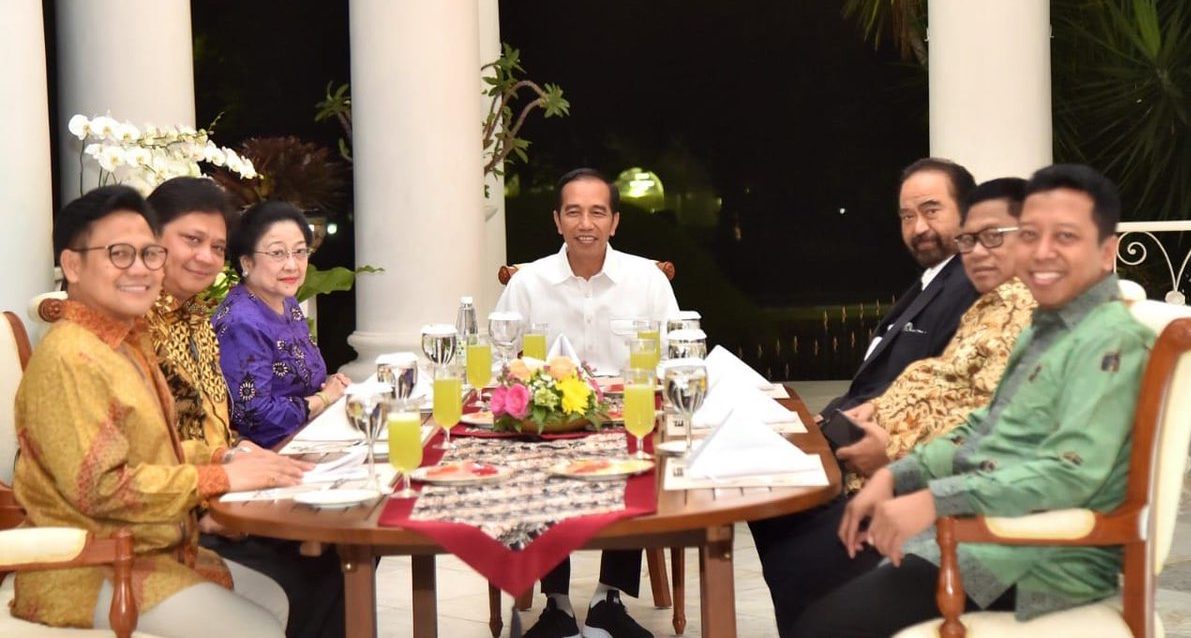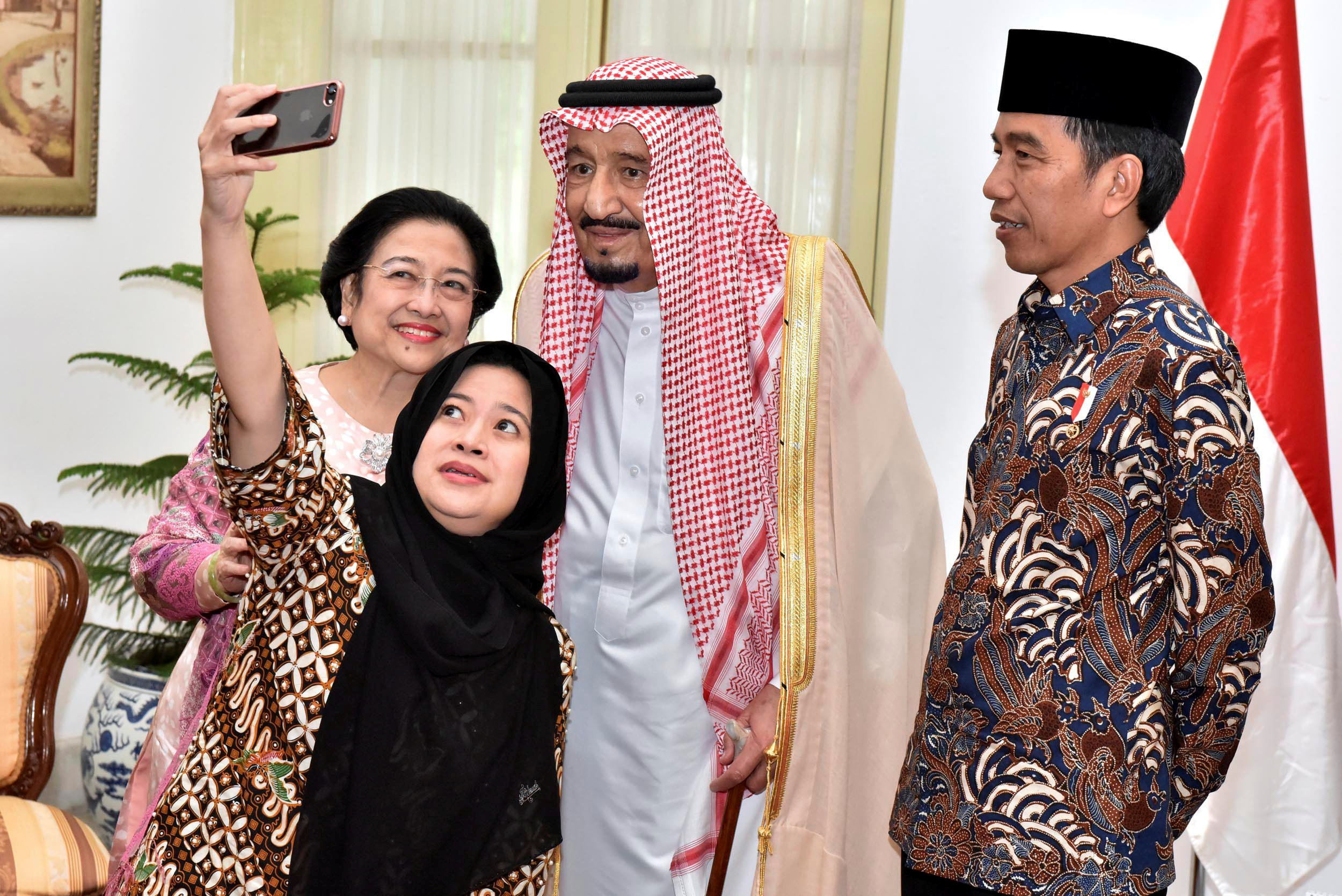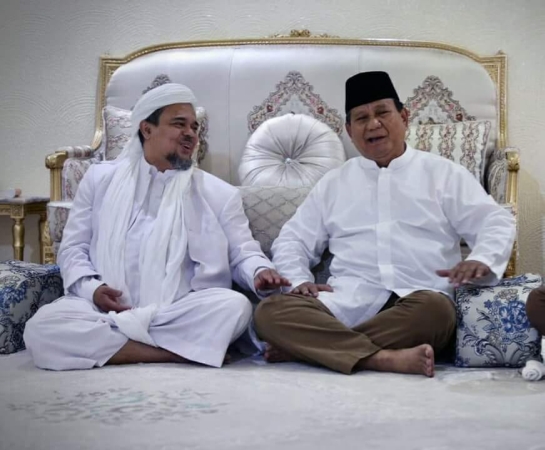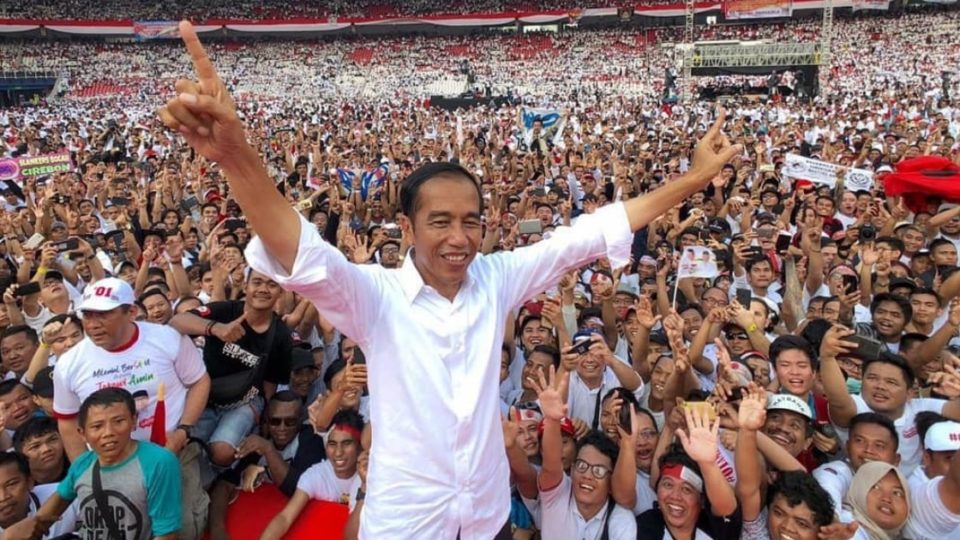It came a day early, but the General Election Commission (KPU) this morning formalized what most of us — save for the few who are still in denial — have already known: President Joko Widodo is going to keep leading Indonesia from 2019 to 2024.
It’s a victory that practically all independent pre-election polls saw coming (though some of their margins were evidently too optimistic in projecting a comfortable victory for the incumbent) and has rendered that ubiquitous viral #2019GantiPresiden (Replace the President in 2019) hashtag into nothing more than a, well, hashtag.
So where does the world’s third-biggest democracy go from here? What does the future hold for President Jokowi’s government, and, by extension, the nation?
Barring any nasty surprises (a la Ahok’s blasphemy scandal), the outcomes of both the presidential and legislative elections have laid the foundations of what to expect in the next five years. And it probably won’t all be smooth sailing for Jokowi from here on out, despite his comfortable victory.
Fickle associations
The PDI-P party, of which President Jokowi is a cadre, pulled off a repeat of 2014 by winning the legislative election with close to 20% of the vote. Of the nine parties to surpass the 4% parliamentary threshold, four government coalition parties occupy the top five spots, with only Prabowo’s Gerindra breaking their sheer dominance by coming in second.
But, as ominous as it sounds from the perspective of any healthy democracy, signs are pointing towards the coalition actually growing in size.

One party that seems to be strongly considering leaving the opposition coalition is one that was half-hearted in its commitment to begin with. Politicians from the Democratic Party — which joined the opposition at the last minute before the 2019 election after remaining neutral since 2014 — have repeatedly undermined Prabowo and his campaign team’s claims of being cheated out of victory in April’s election, possibly to distance themselves from appearing to be in denial in case they want to opt out of the opposition.
To add fuel to the speculation, President Jokowi is scheduled to meet with Agus Harimurti Yudhoyono — son of former president and Democratic Party Chairman Susilo Bambang Yudhoyono — tomorrow to, officially, discuss the election.
Behind closed doors, it’s not a stretch to assume that Agus will offer the Democrats’ allegiance in exchange for some ministerial posts — presumably one for himself. It’s important to note that the Dems joined the opposition after they were promised that Agus would be Prabowo’s running mate, only to see the Gerindra chairman pick former Jakarta Vice Governor Sandiaga Uno. But with the Democrats receiving fewer votes this year compared to 2014 (from 12.7 million to 10.8 million), they’re no longer in a position to make grand demands of Jokowi’s coalition.
Another political figure Jokowi is scheduled to meet tomorrow is National Mandate Party (PAN) Chairman Zulkifli Hasan. Since the election, senior PAN officials have also undermined Prabowo’s claims of election fraud, the latest being PAN’s deputy general chairperson, who branded Gerindra’s supposed evidence of fraud “ridiculous”.
Zulkifli himself refused to commit his party to the opposition despite appearing loyal to them during the election campaign. The PAN chairman has only said that the party will determine its “destiny” this week, which is Indonesian political speak for “keeping their options open.” Whether Gerindra will accept what has become far less than total commitment from PAN remains to be seen.
If PAN and the Democrats were to switch sides (as Indonesian parties often do after elections), that would mean seven of nine government coalition parties, i.e. an overwhelming majority, would dominate the House of Representatives (DPR). But that doesn’t necessarily mean good news for Jokowi’s government.
Jokowi and the DPR — harmony or struggle?
Should the above eventuality play out, or even if we assume that all parties stay in their current respective coalitions, the government holds a huge majority in the DPR (or People’s Representative Council) either way. The question would be, then, who is beholden to whom between Jokowi and the DPR in the next five years?

Again, it must be stressed that Jokowi is merely a PDI-P party cadre and not its chairperson. The party’s leader, former President Megawati Soekarnoputri, has repeatedly in the past asserted that Jokowi is a “party worker,” with the insinuation being that the president wouldn’t be where he is without his party.
Jokowi’s cabinet choices in 2014 reflect that idea, most notably in his formation of the Coordinating Ministry for Human Development and Cultural Affairs and placement of Megawati’s daughter Puan Maharani at its helm.
With greater power, the PDI-P’s coalition in the DPR, in theory, similarly has what it takes to dictate, or at the very least, influence Jokowi’s governance. And we should never put it past our fine lawmakers in parliament to work based on their own self-interests.
It’s also important to note that “government” and “opposition” are largely just labels in parliament, as there is little, if any, ideological differences between political parties in Indonesia. If one piece of legislation benefits all in the DPR, it’s almost certain that all will agree to it regardless of their loyalties.
The most recent unfortunate example of this was UU MD3, a bill that criminalizes criticism against the DPR, among other threats to civil liberties, which was passed by government and opposition lawmakers alike last year. Even with President Jokowi’s refusal to ratify the bill, it took the Constitutional Court to strike down some of the most problematic articles in UU MD3 after its passage into law.
That said, Jokowi stands to lose far less in his second term than in his first, especially as he won’t be able to run for president again in 2024. There is no better time for the president to project his strength than now, particularly as he seems intent on continuing the massive infrastructure drive he embarked on in his first term, but that advice comes with a very important caveat — that he risks alienating his party and their allies if he becomes his own man.
The end of the opposition (as we know it)?
Prabowo and those who remain loyal to him have yet to concede defeat in the election, but, as in 2014, their cries of foul will diminish over time and normalcy should return.
But there may be a new “normal” when it comes to the opposition coalition. After two straight defeats, parties in the opposition (PAN and the Democrats included) may eventually see no reason to continue supporting Prabowo, who, surely, has used up enough of his political mana to rule out another run in 2024.

It’s hard to imagine many parties would like the idea of being used as the personal vehicles of Prabowo in another hypothetical campaign. That would be especially true of the Prosperous Justice Party (PKS), who were among the biggest gainers in 2019 compared to 2014 (8.4 million votes then vs. 11.5 million votes now).
PKS has what it takes to break away from the Gerindra-led opposition and start building themselves up to be serious contenders in the 2024 election. Other Islamic parties, such as PAN and the United Development Party (PPP), could form the foundation of a new Islamic opposition.
In the case of PPP, despite currently being part of the governing coalition, the party was actually part of the opposition in 2014 before an internal rift saw a Jokowi ally installed as its chairman. That chairman is now being investigated on corruption charges, and it’s not too farfetched to predict that another power struggle in PPP could lead to the party breaking away from the government.
As for Gerindra, it’s reasonable to assume that they will do all in their power to avoid such an eventuality and remain the leaders of the opposition. That could mean one of two things: Gerindra doubling down on their pandering to hardline Islamist groups as they have in this election, or going back to their progressive roots at the expense of their Islamic party allies. Should the latter happen, Gerindra can court the allegiance of small and/or new parties that failed to make the parliamentary cut this year, and rebuild for 2024 from there.
We may end up with three coalitions in the near future, one made of Islamic parties and two made of nationalist parties. If that’s the case, we may end up with a presidential election that is contested by very different candidates than Jokowi and Prabowo in 2024. With those two having been the only presidential candidates we got in this decade, we certainly look forward to such a prospect.




